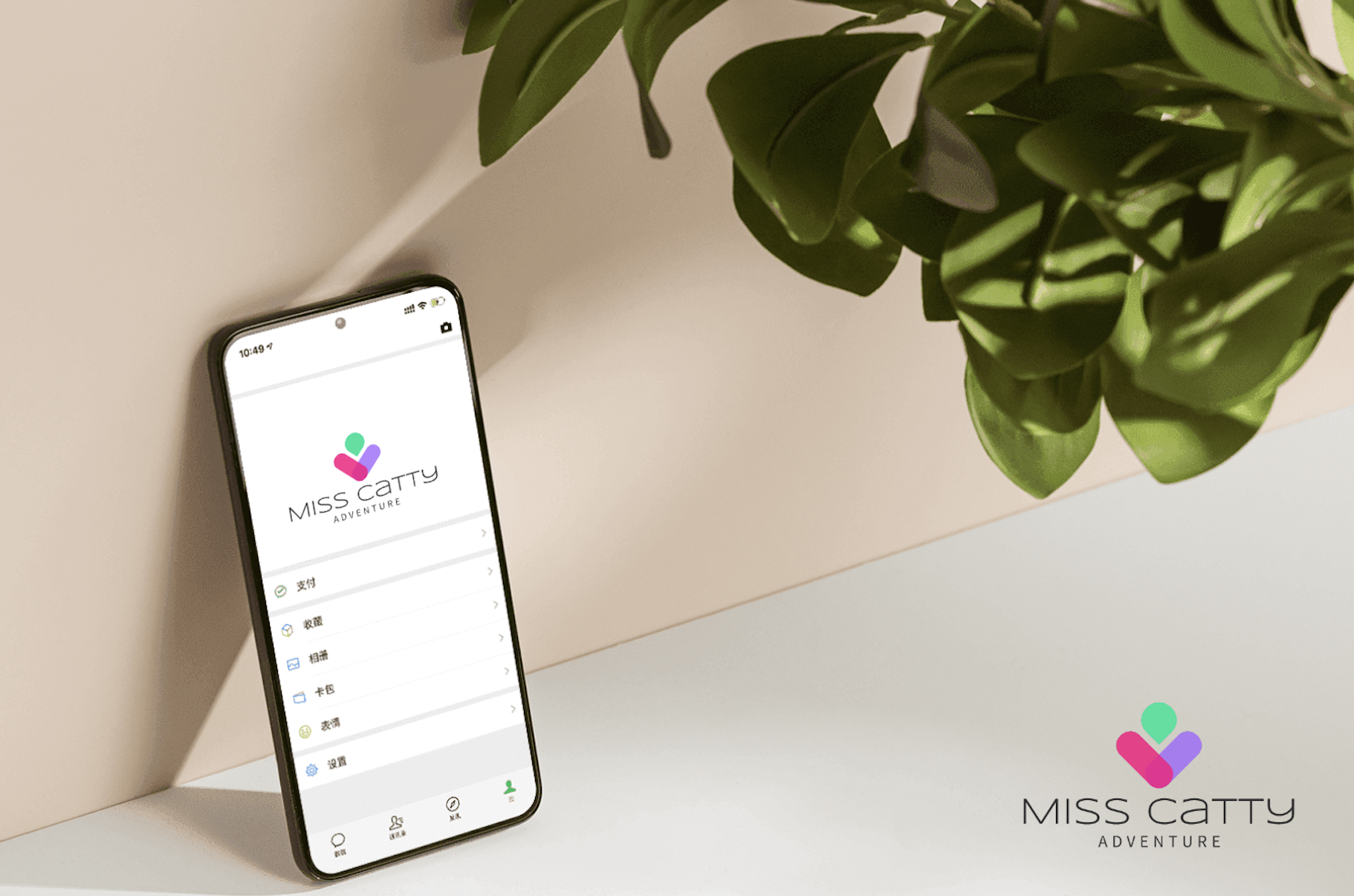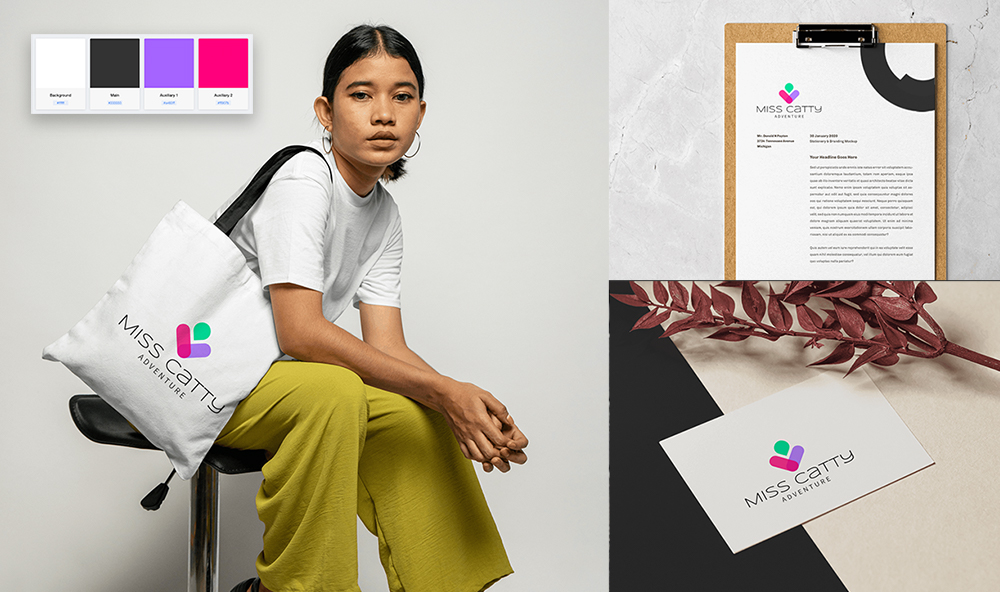In today's business world, building a personal brand is extremely important. Whether you're a business or just an individual, everyone is checking you out online. People want to see what you've written, videos you've made, or what others say about you. Everything you have left a trace on the internet tells the world who you are and what you can bring to the table. Therefore, intentionally building your own personal branding will building trust between you with the rest of the world which can lead to better career or more customers if you're running a business.
What is Personal Branding?
Personal branding is the art of showcasing your unique qualities, skills, values, and personality to the world. It's about crafting a clear and consistent image that reflects who you are and what you represent. From your LinkedIn profile and email signature to your social media content, every tweet you post, every like you click, and every photo you share showcase what you aspire to be and your core values to others.

For example, if you are a graphic designer, start by determine the specific area of graphic design you're most passionate about or knowledgeable in. This could encompass logo design, branding, illustration, or any other niche within the field. To effectively establish your personal brand, it's essential to share your work and insights across various platforms. Distribute your content not only on social media but also within relevant online communities and through email newsletters, ensuring you reach a broader audience. Regularly offer valuable tips, insights, and examples that are directly related to your chosen niche. By doing so, you provide a clear demonstration of your skills and expertise, steadily building confidence in the minds of your audience.
Why is Personal Branding Important?
Stand Out in a Crowded Market: In today's competitive world, differentiation is key. Create a unique logo and a strong personal brand helps you stand out from the crowd and grab the attention of your target audience.
Build Trust and Credibility: A well-crafted personal brand can establish trust and credibility with your audience. When people know what you stand for and can predict your actions, they are more likely to trust and support you.
Career Advancement: For professionals, a compelling personal brand can open doors to career opportunities. Employers and clients are more likely to hire and engage with individuals they can relate to and trust. While having a solid online presence gives you an advantage, most big companies use Applicant tracking systems (ATS) and still ask candidates to send in their resumes. Using an ATS-friendly resume template ensures that your resume will be properly interpreted.
Networking: Your personal brand can also help you expand your professional network. People are drawn to those who have a clear identity and value to offer, making it easier to connect with like-minded individuals.
Examples of Personal Branding
Let's take a look at a few examples of individuals who have successfully built their personal brands:
#1. Web Designer Personal Brand Example : Ran Segall & Flux Academy
Ran Segall is the founder of Flux Academy. Flux Academy offers online courses covering essential tools like Webflow and Figma, empowering designers to learn valuable skills from top instructors, no matter where they are. Flux Academy's distinctive square-shaped logo, accompanied by its prominent use of the color purple, creates a powerful visual identity that plays a pivotal role in establishing their brand.
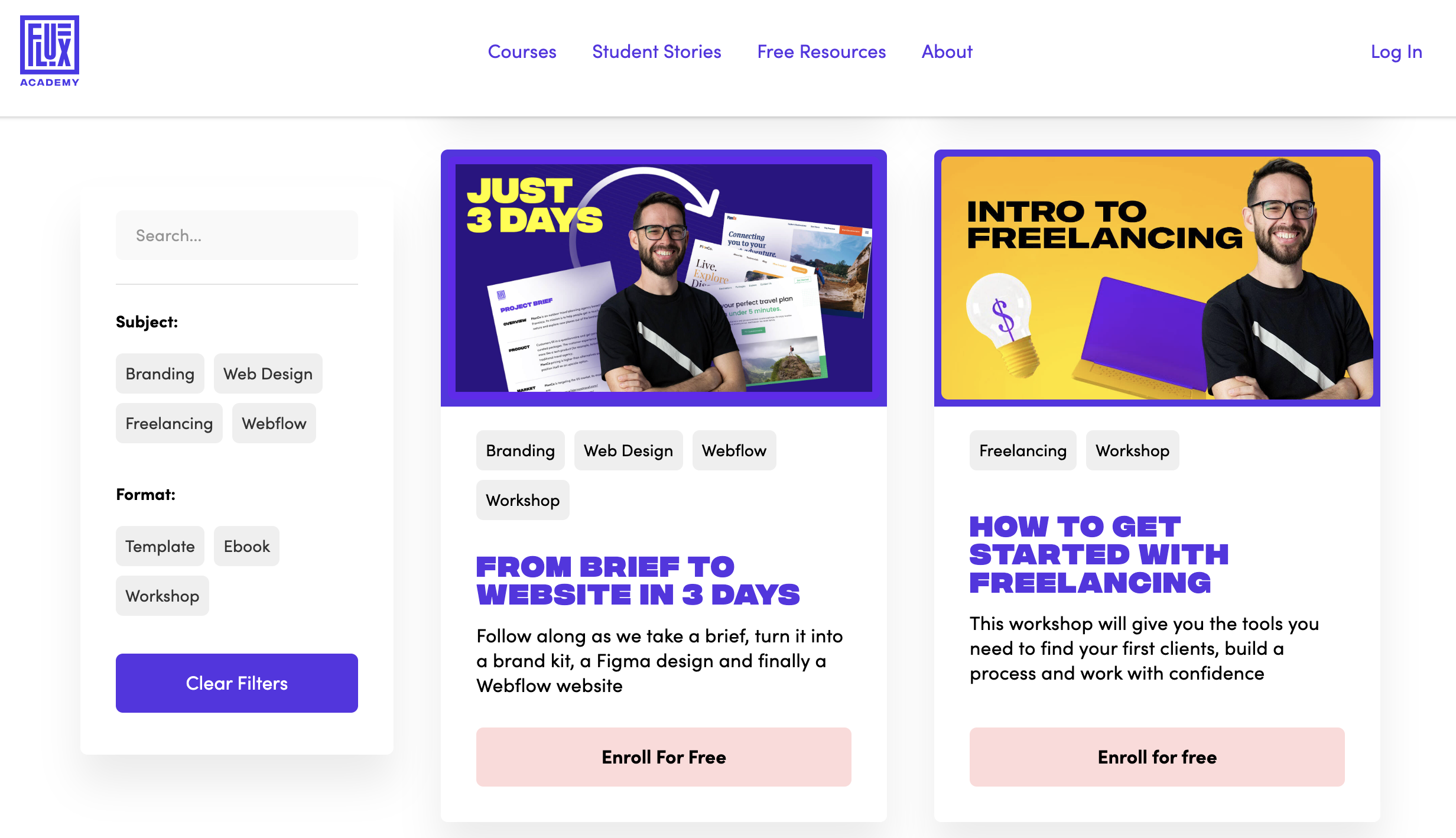
#2. Self-help Author Personal Brand Example : Mark Manson
Mark Manson's website and YouTube channel prominently feature the main color orange, serving as a striking highlight against a dark grey mode visual. This choice reinforces his brand's identity by combining a bold and attention-grabbing color with a sleek, modern design that aligns with his no-nonsense approach to self-help and personal development.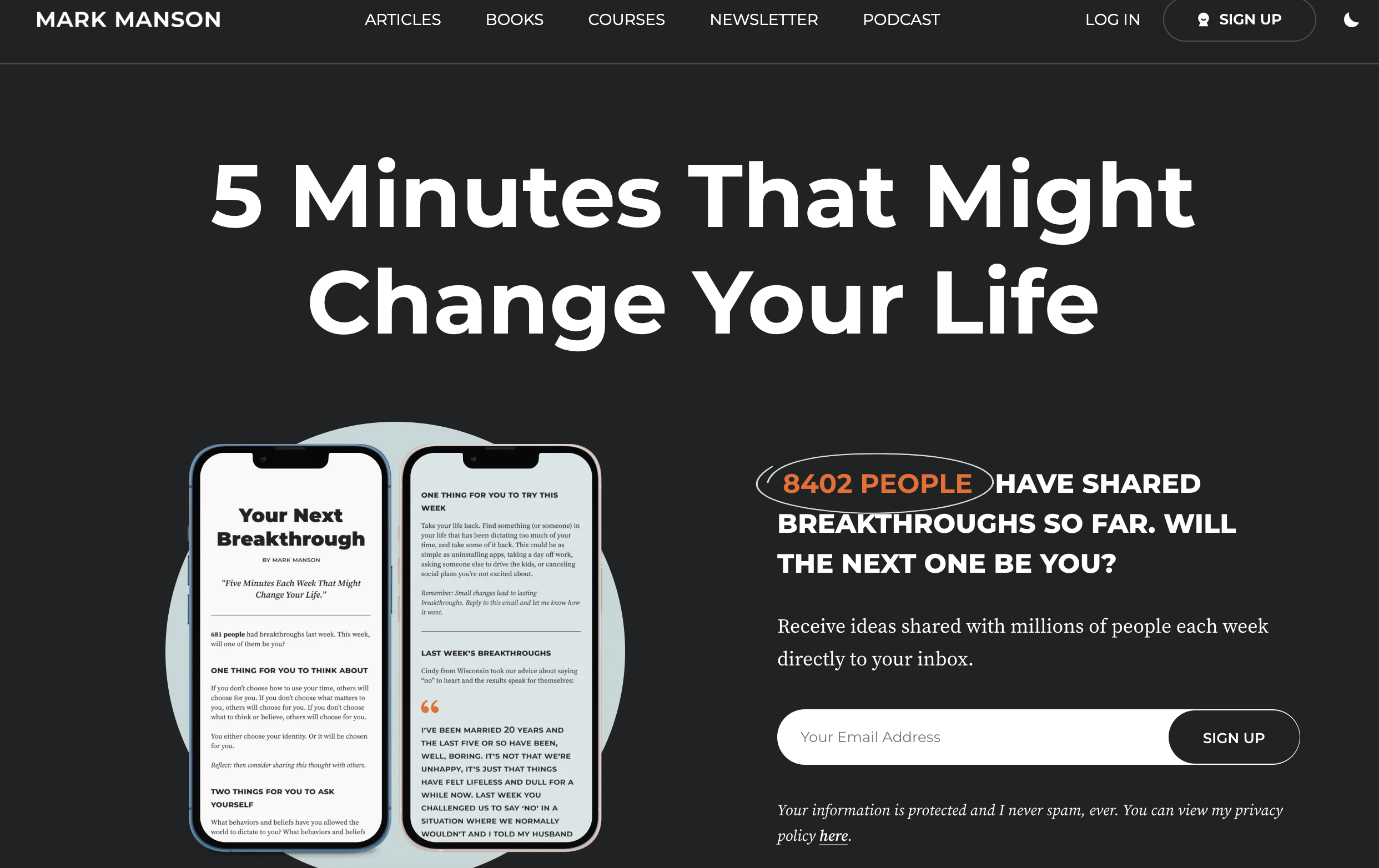
#3. Marketing Consultant Personal Brand Example:Neil Patel
Neil Patel is a well-known figure in the digital marketing and online entrepreneurship space. His brand features a clean logo with bold initials "NP," a distinctive orange color scheme, and a focus on approachable yet knowledgeable imagery, all of which reinforce his expertise in the field.

How to Build a Successful Personal Brand
Now, let's get practical and discuss how to build your personal brand:
Self-positioning: Start by understanding yourself and ask questions. What are your values, strengths, and passions? What kind of characteristic you want people to perceive. Your personal brand should reflect who you genuinely are.

Define Your Audience: Who are you trying to connect with? Identify your target audience and tailor your brand to resonate with them.
Design A Consistent Visual Identity: Ensure that your personal brand is consistent across all your online platforms, from your website to your social media profiles. First of all, you might need to design a personal logo to be the compass for rest of your brand identity. Once your logo is established, choose a cohesive color scheme that reflects your personality and message, and apply it consistently across all your online platforms. Select fonts that align with your brand's style, and maintain a uniform tone and messaging that represents your desired image.
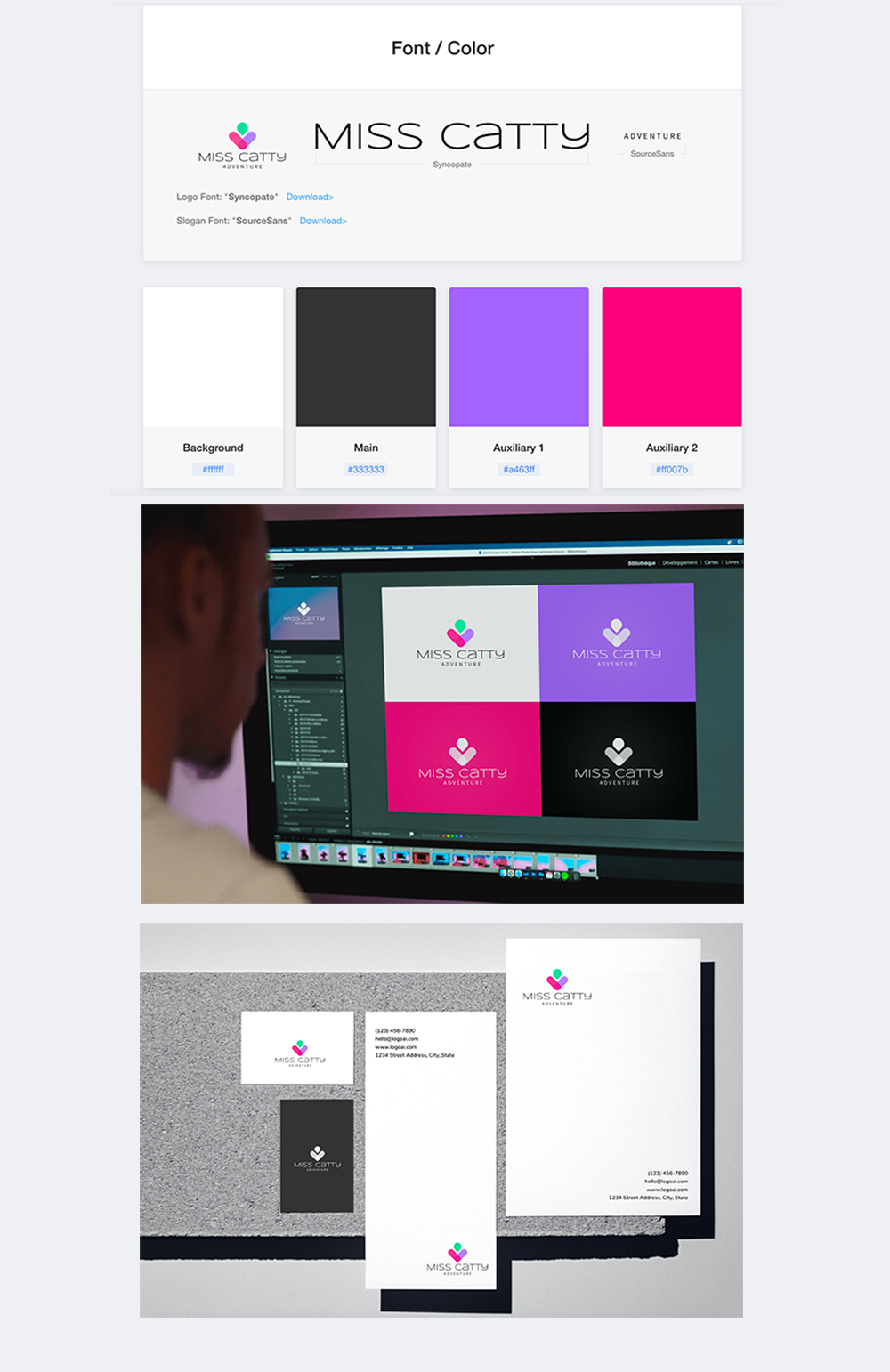 Content Creation: Sharing what you know and your experiences is key. Write blogs, create videos, or post on social media. Leverage the best AI video editing software to enhance your video content, making it more engaging and reflective of your personal brand. It's like showing your expertise and personality to the world. Just remember to use the same colors and logo fonts to keep everything looking neat and recognizable.
Content Creation: Sharing what you know and your experiences is key. Write blogs, create videos, or post on social media. Leverage the best AI video editing software to enhance your video content, making it more engaging and reflective of your personal brand. It's like showing your expertise and personality to the world. Just remember to use the same colors and logo fonts to keep everything looking neat and recognizable.
Engage and Network: Talk to people! Chat with your audience and connect with others in your field. It's like making friends at a party. Building relationships can open up new opportunities for your personal brand.
Seek Feedback: Don't hesitate to ask for advice from people you trust, like friends, mentors, or colleagues. Getting feedback is like having a coach who can help you get even better at what you're doing. It's all part of growing your personal brand.
Leveraging Your Personal Brand For Business Growth
Once you've got your personal brand sorted out, the next step is to keep your online content updated regularly. It's like adding bricks to your authority wall over time. This consistent effort may not seem huge at first, but it can lead to an incredible impact in the long run.
Leveraging your personal brand for business growth is like turning your unique identity into a powerful asset for your company. By authentically representing who you are and what you stand for, you can establish trust and credibility with your audience. Sharing your expertise and engaging with your customers not only strengthens your personal brand but also attracts more customers to your business. It's a dynamic strategy that involves aligning your personal values and expertise with your business goals, creating a win-win situation where your authenticity drives business growth.
